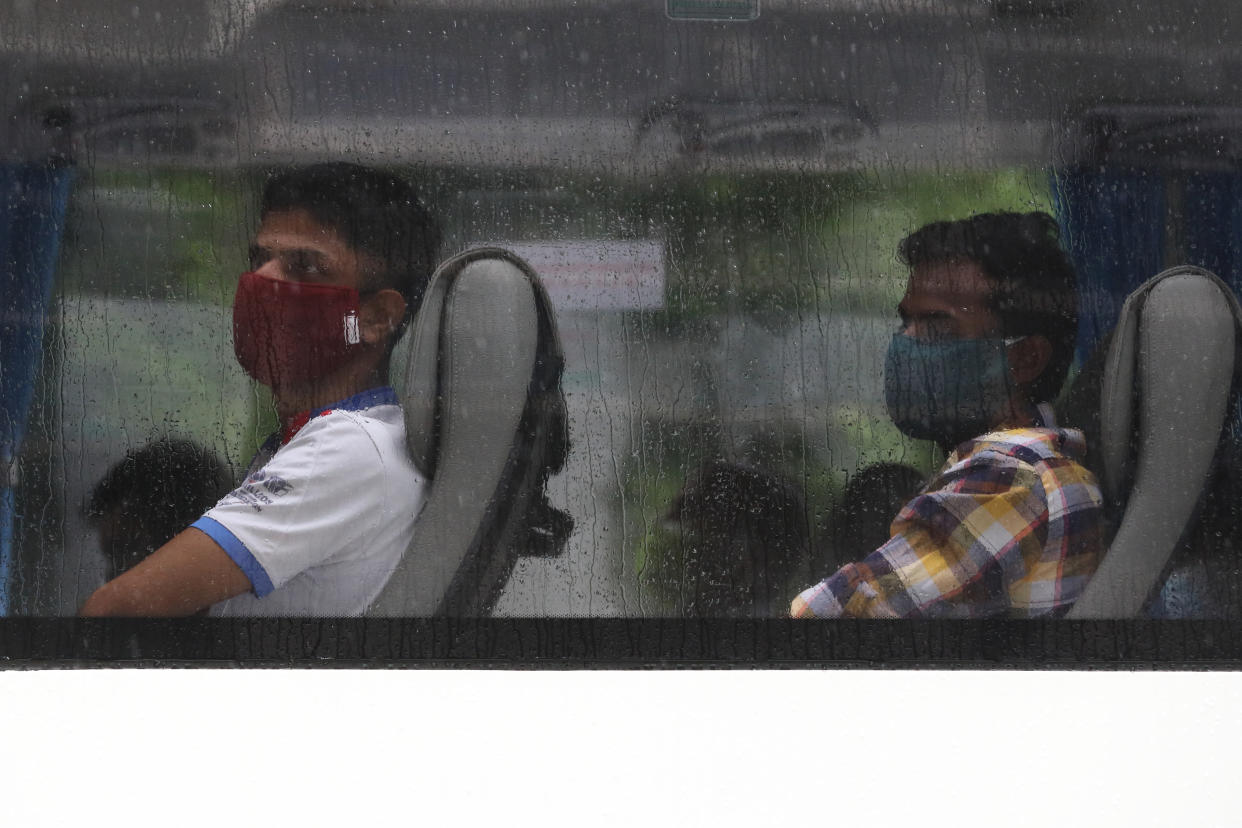COVID-19: 1,200 employers on average penalised annually for unacceptable housing – Josephine Teo

SINGAPORE — An average of 1,200 employers are penalised annually for unacceptable accommodation under the Employment of Foreign Manpower Act, Minister for Manpower Josephine Teo said on Monday (4 May).
Delivering a ministerial statement in parliament, Teo said that about 20 operators were also taken to task yearly for breaches of the Foreign Employee Dormitories Act (FEDA).
Dormitory operators found with lapses are required to rectify them immediately. Offenders may be jailed up to a year and/or fined up to $50,000 for offences under the FEDA, which was enacted in 2015.
Employers may also be jailed up to a year and/or fined up to $10,000 for violations of the Employment of Foreign Manpower Act.
Housing standards for migrant workers have progressed over the years, Teo noted.
Replying to a question by Member of Parliament (Nee Soon GRC) Louis Ng regarding standards of housing in dormitories, Teo said there was a need to “re-look how everyone interacts with one another at home and at our workplaces”.
“Even the way we socialise will have to change. We will need a focus on public education. So the same for our migrant workers,” said Teo, adding that the virus “respects no housing type, no nationality nor occupation”.
Ng had asked Ministry of Manpower (MOM) whether the ministry would consider updating the Singapore Standards Council's Technical Reference and require all foreign workers’ dormitory operators to adhere to it. Ng also asked if the ministry would consider increasing the minimum gross floor area of 4.5 square metres for each resident in a foreign workers' dormitory.
In response, Teo said that any sort of environment where people gather in groups, such as the home and the workplace, could result in significant transmission.
“Likewise, when you have a large number of people, living together, in a communal setting, there is a very high likelihood of transmission.”
Efforts must still be focused on bringing the COVID-19 outbreak under control, said the minister.
“When this is over, we will reflect and thoroughly look into areas where we could have done better, so that we will be better prepared the next time.”
Singapore has some 400,000 migrant workers with a number of dormitories listed as COVID-19 clusters in the recent weeks. More than 50 clusters linked to such dormitories have been identified thus far, including Singapore’s largest cluster linked to S11 Dormitory@Punggol, followed by Tuas View Dormitory and Sungei Tengah Lodge. The three are among the 25 dorms that have been gazetted as isolation areas.
As of Sunday, more than 15,800 workers living in dormitories have come down with the virus.
There are about 200,000 workers housed in the 43 large dormitories and about 95,000 housed in 1,200 factory-converted dormitories. Most of them are from the construction, marine and process sectors.
There are also 20,000 workers housed in construction temporary quarters.
Another 85,000 work permit and S pass holders from the construction sector live in HDB flats, private residential premises, and other premises.
Stay in the know on-the-go: Join Yahoo Singapore's Telegram channel at http://t.me/YahooSingapore
Related stories:
About 40 instances of COVID-19 'fake news' debunked since January: S Iswaran
COVID-19: Migrant workers were on MOM's radar since January – Josephine Teo
COVID-19: Singapore to expand testing capacity, 'strategically' deploy resources
COVID-19: Gan Kim Yong outlines 3 indicators for easing circuit breaker measures



